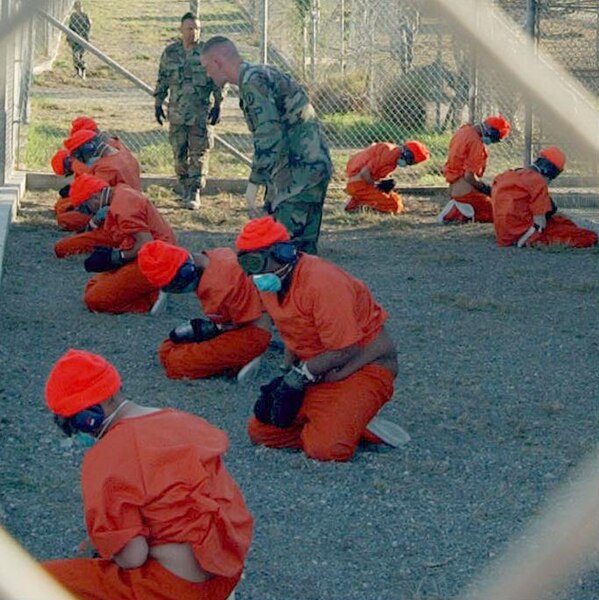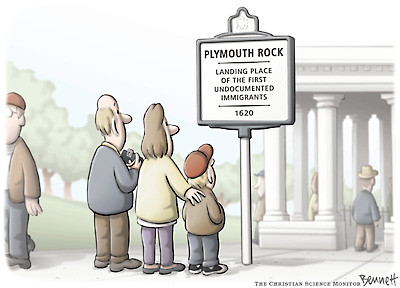Canada May Allow US Cops to Carry Guns Across the Border
 The federal government of Canada is proposing to ease restrictions on foreign law-enforcement officers who carry weapons into Canada.
The federal government of Canada is proposing to ease restrictions on foreign law-enforcement officers who carry weapons into Canada.
"Secret Communiqué" is the web address and it refers to the clandestine radio and print reports dispatched from the jungle fronts of guerrilla forces. Given today’s uninformative mainstream news, my reports bypass the confusion and transmit an unfiltered perspective from atop the hillsides of the true citizenry. I provide news you won't find anywhere else.
 The federal government of Canada is proposing to ease restrictions on foreign law-enforcement officers who carry weapons into Canada.
The federal government of Canada is proposing to ease restrictions on foreign law-enforcement officers who carry weapons into Canada.
Posted by ¿ Ask Y ? at 9:36 PM 63 comments
 Former U.S. Secretary of State Colin Powell became the first from within the administration to call for the shut down of the U.S. Guantanamo Bay detainment camp. He also admitted that the U.S. reputation abroad has since been ruined.
Former U.S. Secretary of State Colin Powell became the first from within the administration to call for the shut down of the U.S. Guantanamo Bay detainment camp. He also admitted that the U.S. reputation abroad has since been ruined.
"If it was up to me, I would close Guantanamo not tomorrow, but this afternoon," Powell said Sunday in an interview on the NBC News program, Meet the Press. "I'd close it. And I would not let any of those people go. I would simply move them to the United States and put them into our federal legal system. The concern was, well, then they'll have access to lawyers, then they'll have access to writs of habeas corpus. So what. Let them. Isn't that what our system is all about? And by the way, America, unfortunately, has two million people in jail all of whom had lawyers and access to writs of habeas corpus. So we can handle bad people within our system."
"We have shaken the belief that the world had in America's justice system by keeping a place like Guantanamo open and creating things like the military commission." Powell said. "We don't need it, and it is creating far more damage than anything we get for it."
All this has come after military judges ruled this past week that the Pentagon could not prosecute two suspects currently in custody in Guantanamo.
Above: "Hölle auf Erden" (Hell on Earth) - by Warheit (Azad, Chaker, Jeyz & Sezai).
This is song is very popular right now in Germany is done by a group of famous German rappers. The video depicts Guantanamo captives and denounces US policies. It's popularity is a direct confirmation of Colin Powell's remarks that actions like Guantanamo have ruined the US reputation abroad.
Posted by ¿ Ask Y ? at 2:30 AM 1 comments
 What could be better for business than a workforce that toils for next to nothing, drives down wages for everyone else, can't protest or unionize, and then goes away when you're done with them? Your guide to the guest worker program.
What could be better for business than a workforce that toils for next to nothing, drives down wages for everyone else, can't protest or unionize, and then goes away when you're done with them? Your guide to the guest worker program. It appears their goal is not to keep out immigrants, who are indispensable to the U.S. economy, but rather to control and exploit them more effectively. Why give them the opportunity to become citizens—or even permanent residents—if we can get what we need from them and then send them packing?
It appears their goal is not to keep out immigrants, who are indispensable to the U.S. economy, but rather to control and exploit them more effectively. Why give them the opportunity to become citizens—or even permanent residents—if we can get what we need from them and then send them packing?
Posted by ¿ Ask Y ? at 9:32 PM 5 comments
 - France's new Immigration, Integration and National Identity Minister, Brice Hortefeux toured Charles de Gaulle airport on his first day on the job. He has said he intends to pay more immigrants to return home. -
- France's new Immigration, Integration and National Identity Minister, Brice Hortefeux toured Charles de Gaulle airport on his first day on the job. He has said he intends to pay more immigrants to return home. -Posted by ¿ Ask Y ? at 3:27 PM 4 comments
